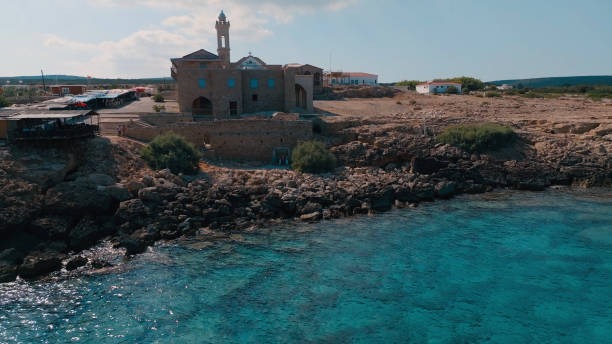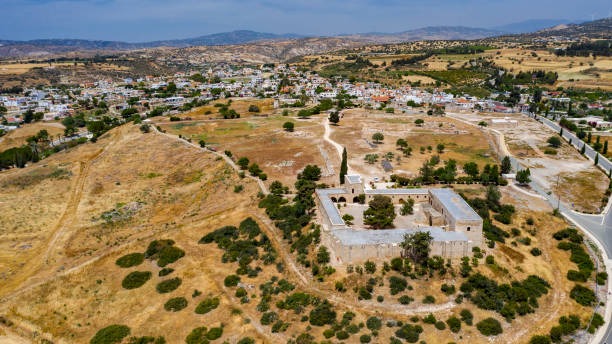Legal and Creative Considerations When Filming in Protected Cultural Areas in Cyprus
When filming in protected cultural areas in Cyprus, bypassing the legal procedures may lead to fines or even restrictions to places.
CYPRUS PHOTOGRAPHY AND VIDEOGRAPHY
10/21/20255 min read


When Filming in Protected Cultural Areas in Cyprus
Cyprus is the territory of ancient ruins, old villages, and monuments, which share the thousands of years of civilization. To filmmakers, these are the most beautiful locations and narration. Yet, it is never so easy to work in such subtle areas as installing a camera. Ethical rules, regulations, and permits should be adhered to. Concurrently, the artistic decisions have to pay deference to the spirit of the place. That is why it is essential to be familiar with the legal and artistic aspects of it. When filming in endangered cultural areas in Cyprus.
The Reason Why Filmmakers Want to Work on Guarded Cultural Zones.
Cultural zones are inimitable. Whether it is an amphitheater, a monastery, a castle, or a village, it is authentic and gives any project the flair of antiquity. They provide what modern sets are unable to provide. That is why there are many productions that want to shoot there. But there is not beauty alone to think of. Such sites are a part of the national identity, and they require maintenance. This is the balance between art and responsibility; in this case, art is what makes success.
Legal Requirements You need to obey.
Legal frameworks ensure that cultural regions are not abused and damaged. In order to legally film, permits are necessary. Different locations are controlled by authorities like the Department of Antiquities and local municipalities. Applications typically contain the description of a project, number of crew members, equipment, and shooting dates. In most cases, insurance is obligatory. This will safeguard the location in case of any accidents. When filming in protected cultural areas in Cyprus, bypassing the legal procedures may lead to fines or even restrictions to places. Adherence to rules is a sure way to have smooth work and gain credibility among the government and the people.
Learning how to go through the permits.
The process can take time. That is the reason why filmmakers are encouraged to apply weeks or months prior to production. Late communication can be prevented. There can also be conditions attached to applications. Other websites permit handheld cameras. There are also others that limit drones or heavy lighting. When filming in protected cultural areas in Cyprus, clear rules are to be followed in your work. To fulfill this condition is not simply a matter of legality—it demonstrates respect for history.
Expenses and Budgetary Issues.
The bigger production normally incurs higher costs due to the necessity of larger space and manpower. Individual producers can even receive lower rates. Early budgeting is better than late budgeting. Keep in mind that some of the funds are the site preservation funds. When filming in protected cultural areas in Cyprus, seeing the viewing fees as an investment will make you appreciate the project you have as well as the heritage you are presenting.
Cultural Environment Creative Opportunities.
Outside the law, creative vision has to evolve within the environment. Cultural districts do not just have landscape but also have ambiance and a sense of place. A medieval castle adds drama. A village square adds warmth. The addition of timelessness is made by an amphitheater. When filming in protected cultural areas in Cyprus, the story you tell ought to suit the surroundings. Playing with the right angles, light, and pacing allows you to do justice to the space and take your production to a new level.
Challenges to Expect
Shooting sensitive places is very rewarding, and it has challenges. Crews can experience equipment restriction, access restriction, or reduced shooting hours. Filming may be interrupted by crowds of visitors. Although the weather in Cyprus is mostly favorable, any delay might be sudden, and thus flexibility is important. These problems are usually overcome using smaller crews, light gear, and reserve schedules.
Working with Local Experts
The process is facilitated by local professionals. The background of every site is known by location managers, historians, or guides. They also know how to work with authorities. When filming in protected cultural areas in Cyprus, that would help in working with local experts, and this would facilitate smoother logistics. It also makes the project seem more real since you get to know about traditions and other cultural information that outsiders might not know.
Finding a balance between respect and creativity.
The basis of filming in heritage sites is respect. It is not allowed to move props, which are damaging, or even modify spaces in order to make dramatic effects. When filming in protected cultural areas in Cyprus, filmmakers who are loyal to the tradition tend to produce more powerful and more true-to-life work.
Impact and responsibility of the audience.
The present-day audiences are more conscious about cultural issues. They observe when the heritage is honored and abused in movies. An elegant attitude brings credibility to the film producer as well as the location. Sightseeing projects, which showcase the beauty of the heritage of Cyprus, also lead to tourism and cultural pride. That is why it is not only legal but also a creative responsibility. When filming in protected cultural areas in Cyprus, you make not only a story but also the vision of history for viewers.
Long-term Merits of Doing It Right.
Filmmakers that operate by the rules usually have a chance of getting repeats. When a team is trusted, the authorities will be more ready to approve the future projects. Respect also makes the local communities supportive as well. When filming in protected cultural areas in Cyprus, gaining a good image can lead to some special privileges in the future. Respectful work generates long-term benefits both to the artist and to the destination.
The Future of Filming Cultural Heritage Sites.
Cultural locations will not be overlooked as the need to find rare filming locations grows around the world. This growth will suit Cyprus with their blend of ancient and modern heritage. Rules will also be more strict to preserve. Directors who are familiar with creative and copyrighted issues will succeed. When filming in protected cultural areas in Cyprus, those who can adjust to the changing rules preserving the artistic value will be in the vanguard.
Conclusion
The cultural areas in Cyprus are breathtaking, and they are enriching to any production. Out of the ruins of villages, they all have a story to be captured. Filming here, however, does not take technical skill. It demands respect, judicial awareness, and imaginative sensitivity. It is better to know how to act according to the rules and change your vision to succeed. When filming in protected cultural areas in Cyprus.


FAQs
Does this mean that all important sites in Cyprus need permits to be filmed?
Yes. Practically all the secured cultural sites are subject to permits, but regulations and payment differ depending on the location and the nature of the project.
Do small independent filmmakers have a chance to shoot in these places?
Yes. Independent moviemakers have the possibility of receiving permits, and in certain instances, they might receive lower charges or extra assistance from the local organizations.
Services
Professional video and photography for businesses.
CONTACT US
NEWSLETTER
EVERNEED AI LTD
+357 96166570
info@cyprusvideographer.com
Athalassas Avenue 143 - Apartment 201,
Strovolos 2015
Nicosia, Cyprus
© 2025. All rights reserved.
Powered by Skyrocket Marketers
